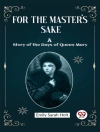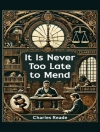Sinclair Lewis’s 'Kingsblood Royal’ is a powerful exploration of race and identity set in the early 20th century American Midwest. The novel follows the life of Neil Kingsblood, a white man who discovers that he has African ancestry. This revelation compels him to confront the entrenched racism of his community and his own prejudices, ultimately leading to a profound personal transformation. Lewis employs a satirical yet poignant literary style, deftly blending realism with biting social commentary that interrogates the constructs of race and privilege in American society. The narrative reflects the cultural tensions of its time, encapsulating the struggle between individual identity and societal expectations in an era grappling with the implications of race relations. Sinclair Lewis, an award-winning novelist and the first American to receive the Nobel Prize in Literature, often drew from his own experiences growing up in a small town. His prior works, such as 'Main Street’ and 'Babbitt, ’ set the stage for the themes of conformity and social critique that permeate 'Kingsblood Royal.’ Lewis’s insightful observations of American life and culture, coupled with his passion for social justice, illuminate the urgent issues presented in the novel. 'Kingsblood Royal’ is a compelling read for anyone interested in the intersection of race, identity, and societal norms. Lewis’s incisive prose and rich character development invite readers to question their own beliefs while providing a mirror to the complex realities of race in America. This novel remains a vital contribution to the ongoing discourse surrounding race relations and its relevance continues to resonate today.
O autorze
Sinclair Lewis (1885-1951) was a distinguished American novelist and playwright, celebrated for his insightful social criticisms and incisive portrayals of American life in the early 20th century. Born in the small town of Sauk Centre, Minnesota, Lewis tapped into his middle-western roots to create colorful and authentic narratives. He attended Yale University and later worked in various clerical and editorial positions before achieving success as a writer. Lewis’s groundbreaking novel 'Main Street’ (1920) challenged the idealization of small-town life, while 'Babbitt’ (1922) satirized the American commercial culture. His writing often characterized by sharp satire, keen social perception, and an unflinching examination of American society and values, Lewis became the first American to be awarded the Nobel Prize in Literature in 1930. His later work, 'Kingsblood Royal’ (1947), continues in this vein as a provocative commentary on race and class relations, following the life of a white man who discovers that he has African American heritage. Through such works, Lewis illuminated the complexities and contradictions inherent in the American identity, employing a literary style marked by irony and realism. His portrayal of characters and communities is simultaneously sympathetic and critical, a balance that has cemented his legacy as both a literary artist and a keen social commentator.












